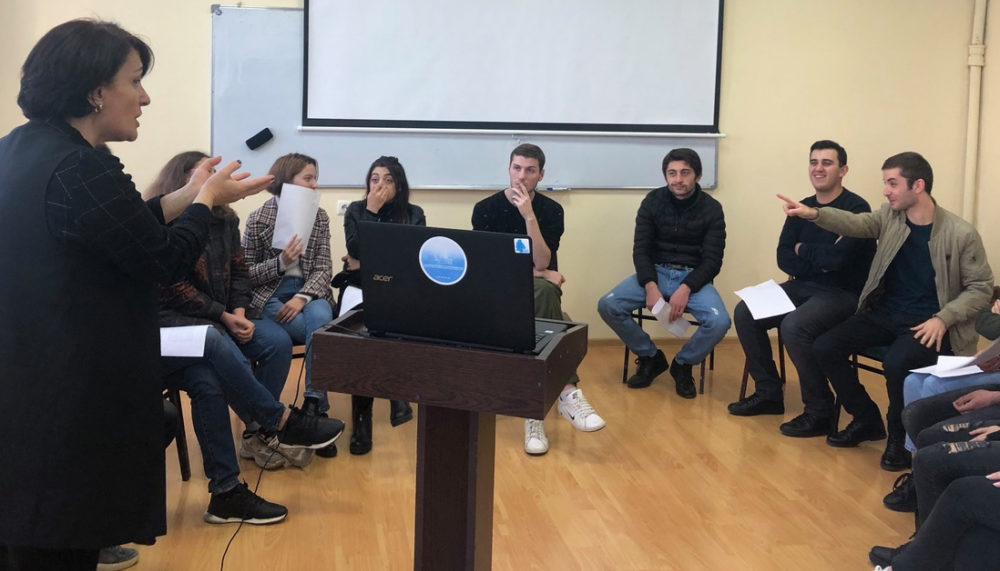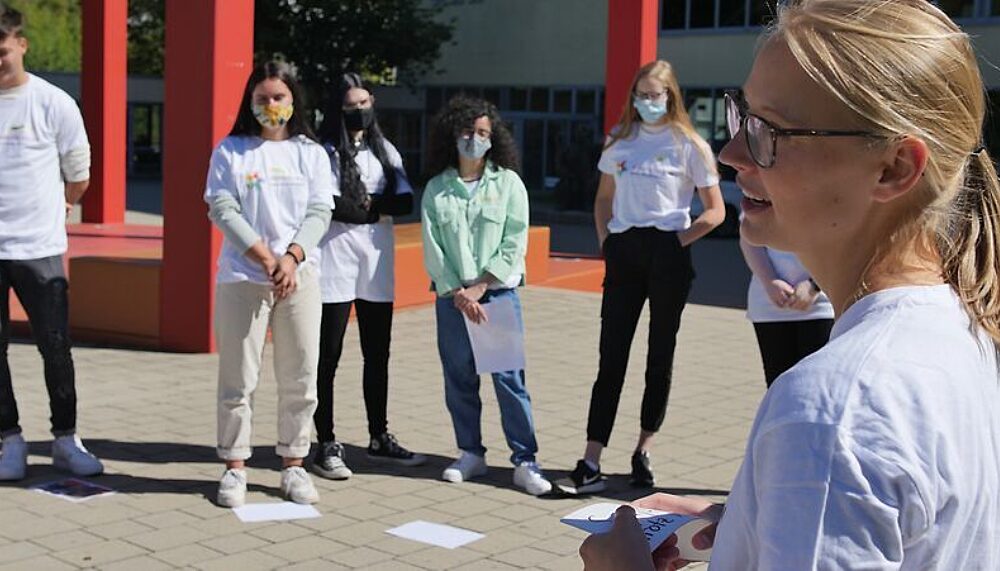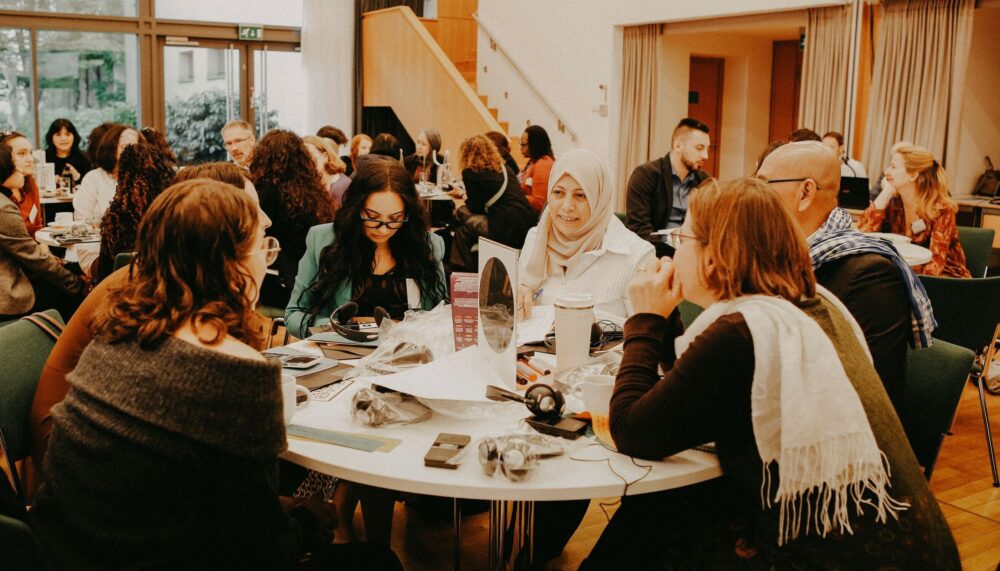PAST PROJECT
History dialogue as basis for normalisation of the Georgian-Abkhazian conflict

We support our partners in overcoming the 'silence on history' that characterises many interactions across conflict lines and acknowledge the grievances caused by violence and injustice on all sides.
Timeframe: 2012 - 2024
In our work on history dialogue in the Georgian-Abkhaz conflict, participants from different age groups in both societies engage in a dialogue on history. We strive to support our partners in overcoming the 'silence on history' that characterises many interactions across conflict lines and acknowledge the grievances caused by violence and injustice on all sides. Thus, we contribute to the goal of building sustainable, trustful relationships between civil society actors on all sides, while bolstering sustainability in the entire peacebuilding system.
In these dialogue processes, participants exchange stories about their own history in a strictly biographical mode, listening to different voices and sharing various experiences. Voicing grievances and appreciating the other sides’ losses can initiate a step towards forgiveness.
Listen to their stories and find out more in our Oral History Archive.
Oliver Wolleh spoke with Georgian media organization Studio Re about challenges and opportunities for confidence-building in the Georgian-Abkhazian context:
Oliver Wolleh also spoke with Eurasia Peace about his research interests, as well as his work with Berghof's Caucasus programme over the years:
Background
The conflict between Georgia and Abkhazia dates back to pre-Soviet times and erupted into various wars in the early 1990s and again in 2008. Historical narratives played a critical role in the escalation of violence, as they were used to back up various territorial claims. In the aftermath of the wars, individual memories and official victim- and hero-narratives have become key to commemorating the war on all sides. Due to these narratives, young generations often end up feeling responsible for former generations’ deeds or obliged to live up to heroic standards.
Atrocities and injustices, committed by all sides before and during the wars, are hardly ever addressed in current peacebuilding activities in the region. Nevertheless, they create an enormous obstacle to open-hearted and constructive encounters when left unaddressed. Often, the fear of opening old wounds or admitting failures committed by one’s own side lead to such neglect. The 'silence on history' thus becomes a huge obstacle to the peacebuilding system as a whole.
Partners and funding
The project is funded by the German Federal Foreign Office and carried out in cooperation with key individual facilitators and following institutional partners:
- Ilia State University, Tbilisi
- Faculty of Law and International Relations of Georgian Technical University, Tbilisi
- Free University of Tbilisi
- Caucasus University, Tbilisi
- Sabauni - Sulkhan-Saba Orbeliani University, Tbilisi
- The Batumi Shota Rustaveli State University, Batumi
Activities
Together with our partner organisations in Georgia and Abkhazia we conduct regular discussion rounds and workshops on war memory. In this work we deliberately focus on rural and border regions as well as IDP settlements. It is our goal to make people and stories from all regions heard, who are rarely heard in official discourses. In Intergenerational Dialogue, older and younger people interact. Older participants add their experiences, younger participants challenge dominant narratives and share their views. To deepen and broaden the discussions, the Berghof team regularly conducts intergenerational one-day workshops, opening spaces for deeper discussion. In 2019 and 2020 our local team conducted 1300 parallel local discussion workshops (800 by the Georgian team and 500 by the Abkhaz team).
An important feature of our work is the joint Abkhaz-Georgian digital/Zoom workshops. During these meetings, active participants take part to discuss memories of the wars from both societies. The individual approach encourages mutual openness as well as a sensitive and trustful relationship between the participants. In spite of the difficult topics, all participants relate to each other in a very thoughtful and sensitive way. The discussions showed that on both sides there is readiness to listen, to understand and to acknowledge painful issues. In 2020, our Georgian-Abkhaz facilitators team conducted 70 joint discussion workshops. Results and Reflections of the process can be found in this video:
Updates from this work:
- Video: Georgian-Abkhaz conflict 30 Jun 2021
- Видео: грузино-абхазский конфликт 30 Jun 2021
Publications from this project:
Project lead
Oliver Wolleh
Senior Advisor
email hidden; JavaScript is required
Team members
Tamila Gvadzhava
Izzat Khushbakov
Media contact
You can reach the press team at:
+49 (0) 177 7052758
email hidden; JavaScript is required


